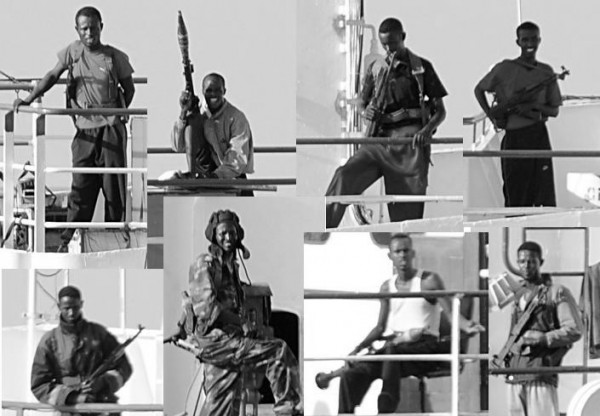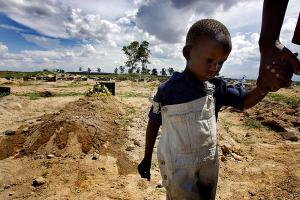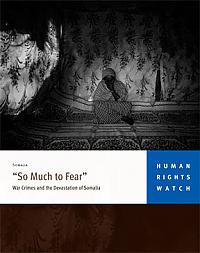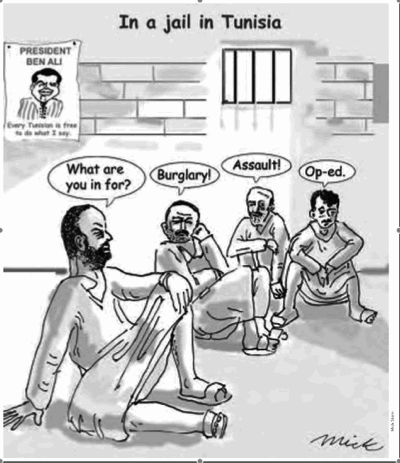‘You are being lied to about pirates’ - Johann Hari
By ACAS | 5 January 2009

Who imagined that in 2009, the world’s governments would be declaring a new War on Pirates? As you read this, the British Royal Navy – backed by the ships of more than two dozen nations, from the US to China – is sailing into Somalian waters to take on men we still picture as parrot-on-the-shoulder pantomime villains. They will soon be fighting Somalian ships and even chasing the pirates onto land, into one of the most broken countries on earth. But behind the arrr-me-hearties oddness of this tale, there is an untold scandal. The people our governments are labelling as “one of the great menaces of our times” have an extraordinary story to tell – and some justice on their side.
...read the restZimbabwe: Failing Better?
By David Moore | 3 January 2009
The words of Samuel Beckett’s Worstward Ho fit Zimbabwe. If the process of ‘democratisation’, liberalisation, and all those other aspects of capitalist modernity is ‘westward,’ then Zimbabwe under a challenged Mugabe has been heading there in almost the worst conceivable way. But for the democrats struggling to enlarge their space the words of the ultimate tragic optimist are appropriate too. More than three decades (including the liberation war after the mid-seventies) under Mugabe have meant those attempting to widen space for their democratic desires being doomed to repeat Beckett’s injunction: “ever tried? Ever failed? No matter, try again, fail again, Fail better”. It’s hard not to “throw up for good” in such a struggle, but they haven’t yet. The problem, though, is finding a way to combine parliamentary and extra-parliamentary roads to that end.
...read the restVideo: Confusion over Guinea coup after president dies - Al Jazeera
By ACAS | 23 December 2008
...read the restMugabe’s Endgame
By Clapperton Mavhunga | 18 December 2008
Could it be possible that while the public, the press, and the international community were busy with cholera, the illegal regime in Harare actually declared a state of emergency under cover of a “national emergency” (ostensibly against cholera)? I may not be the only one seeing the reality that what has intensified is not the energy with which Mugabe is combating cholera, but, rather, abducting human rights activists collecting information on human rights abuses and MDC activists.
...read the restPolitical poison sickening Zimbabwe : Human Rights Watch
By ACAS | 16 December 2008

‘As the cholera outbreak in Zimbabwe spreads across regional borders, southern African governments have come together to discuss a regional strategy to stem the outbreak. But the cholera outbreak and other emergency conditions are symptoms of the broader political crisis in Zimbabwe. There will be no end to the suffering unless regional leaders acknowledge this fact,’ writes Tiseke Kasambalam of Human Rights Watch.
...read the rest‘So Much to Fear’: War Crimes and the Devastation of Somalia
By ACAS | 15 December 2008
 New from Human Rights Watch: ‘The 104-page report, “So Much to Fear: War Crimes and the Devastation of Somalia,” describes how the Somali Transitional Federal Government (TFG), the Ethiopian forces that intervened in Somalia to support it and insurgent forces have committed widespread and serious violations of the laws of war. Frequent violations include indiscriminate attacks, killings, rape, use of civilians as human shields, and looting. Since early 2007, the escalating conflict has claimed thousands of civilian lives, displaced more than a million people, and driven out most of the population of Mogadishu, the capital. Increasing attacks on aid workers in the past year have severely limited relief operations and contributed to an emerging humanitarian crisis.’
New from Human Rights Watch: ‘The 104-page report, “So Much to Fear: War Crimes and the Devastation of Somalia,” describes how the Somali Transitional Federal Government (TFG), the Ethiopian forces that intervened in Somalia to support it and insurgent forces have committed widespread and serious violations of the laws of war. Frequent violations include indiscriminate attacks, killings, rape, use of civilians as human shields, and looting. Since early 2007, the escalating conflict has claimed thousands of civilian lives, displaced more than a million people, and driven out most of the population of Mogadishu, the capital. Increasing attacks on aid workers in the past year have severely limited relief operations and contributed to an emerging humanitarian crisis.’
On press freedom in Tunisia
By ACAS | 15 December 2008

The Glass Fortress: Zimbabwe’s Cyber-Guerrilla Warfare
By Clapperton Mavhunga | 13 December 2008
This is a story of the way internet has brought together print and audio into a diverse bouquet of weapons, giving birth to the cyber-guerrilla. It is a story that must start with Strive Masiyiwa, the man who brought the internet to Zimbabwe. A former engineer with the state-owned Posts and Telecommunications Corporation (PTC), in 1994 Masiyiwa established Econet Wireless (Pvt) Ltd. amid red-faced resistance from the regime. The state refused to grant him a license, but in 1997 the Supreme Court declared the state’s telecommunications monopoly unconstitutional. Only the intervention of Vice President and Zapu supremo Joshua Nkomo prevented Mugabe from further emasculating Masiyiwa’s project.
...read the restWaiting for Power-sharing: A False Promise?
By Norma Kriger | 13 December 2008
Mugabe was re-elected as President in the run-off on June 27 2008 after the MDC’s Morgan Tsvangirai withdrew from the contest because of the high levels of political violence and other conditions that made a free and fair election impossible. Days after Mugabe was sworn in for another five-year term, the African Union (AU) encouraged the formation of an inclusive government and expressed support for the continuation of the Southern African Development Community’s (SADC’s) mediation efforts. On July 21 2008, all three party leaders signed the Memorandum of Unity (MOU) committing them to establish an inclusive government. Taking much longer than the envisaged two weeks in the MOU, they signed a power-sharing agreement that provided for the creation of a new government on September 15. The agreement has yet to be implemented.
...read the restThe Zimbabwean Working Peoples: Between a political rock and an economic hard place
By Horace G. Campbell | 13 December 2008
At the summit of the African Union in Ghana in July 2007, Robert Mugabe was given a standing ovation. Later he went outside the conference to deliver a roaring anti –imperialist speech at a huge public rally. At the Nkrumah square Mugabe was hailed as one of the most steadfast revolutionary leaders in Africa. One year later, at the African Union Conference in Cairo, Egypt, Robert Mugabe was shunned by most leaders and condemned by those who opposed the authoritarian and dictatorial methods of rule. One day prior to the conference Mugabe had been sworn in as President after a non-election where he was the only candidate. This was a far cry from his initial inauguration in April 1980 when he was sworn in as Prime Minister before a throng of hundreds of thousands. Bob Marley had led the popular anti-racist and anti-imperialist forces to this celebration and had sung, Africans a liberate Zimbabwe. By June 2008 Robert when Mugabe was sworn in his regime had degenerated from a party associated with the legacies of Patrice Lumumba and Kwame Nkrumah to an organization associated with the militarism and repression of Mobutu Sese Seko and Hastings Banda. Working peoples all across the region led and inspired by the Congress of South African Trade Unions opposed the Mugabe government and called for its isolation. Nelson Mandela was moved to declare that one was witnessing a ‘tragic failure of leadership in Zimbabwe.’
...read the rest